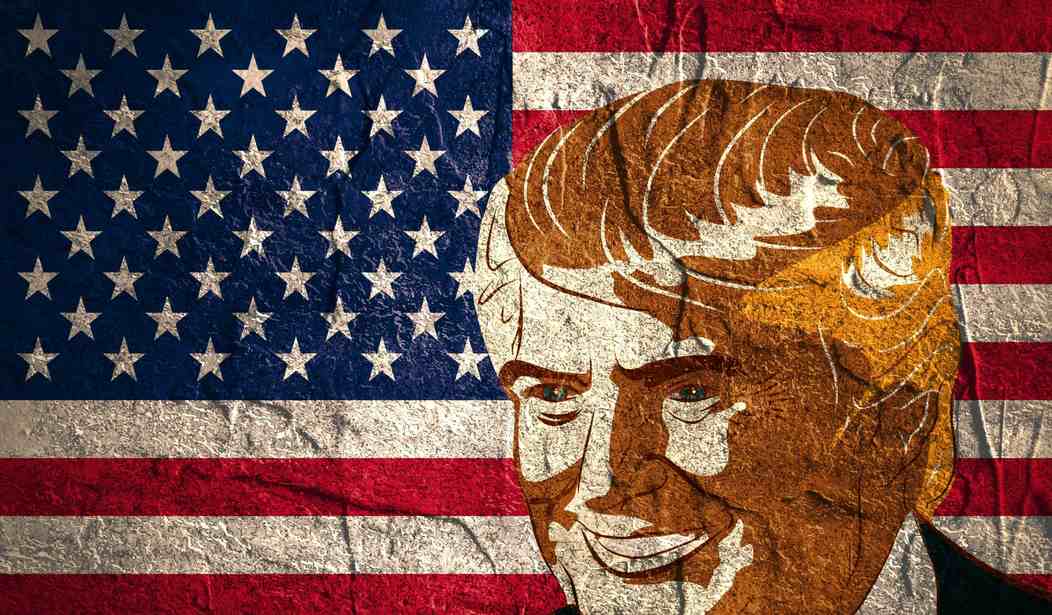The policy take-away from President Trump’s remarks last night at the Heritage Foundation centered around tax cuts. The president likes ‘em, and if he has his way (and on this issue, I think he will), we will see a sharp cut to the corporate tax rate (from 35 percent to 20 percent), a simplification and reduction of the individual tax rate, and a big expansion of the individual exemption (to $12,000 for individuals and $24,000 for married couples filing jointly).
Advertisement
There is a certain kind of politician who likes high taxes, partly because he likes big government, which is the natural result of high taxes, partly because he wants most people (not his tribe, of course) to have as little money as possible. The poorer people are, the more dependent they are. Politicians of a certain stripe want people to be dependent on the government, i.e., on them and the instruments they control.
To my mind, that unholy dialectic between political power and an agenda of enforced dependency is one of the most despicable and destructive coefficients of the administrative state. It is despicable because it deploys power for personal aggrandizement under the camouflage of helping (i.e., pretending to help) others (the “Great Society,” etc.). It is destructive because its end is the eclipse of liberty for the sake of expanding and institutionalizing the apparatus of bureaucracy (and the perquisites of the bureaucrats running it).
So I applaud the president’s plan to cut taxes and allow Americans to keep a bit more of what after all is their own money. (We tend to forget this.)
But although taxes formed the official centerpiece of the president’s speech last night, and though I liked what he said about taxes, I thought the most impressive part of the speech was its rhetorical setting. The occasion was a meeting of Heritage Foundation supporters. Accordingly, President Trump began by talking about the importance of embracing our history, our heritage. “For America to have CONFIDENCE in our future, we must have PRIDE in our HISTORY.”
Advertisement
I think that is right, and I think it is worth pondering each of the three stressed words.
One of the great liabilities of so-called identity politics is that, ironically, it acts as a solvent on shared cultural confidence. The irony flows from the fact that identity politics is supposed to leave its partisans with an enhanced sense of self-worth and solidarity but in fact it tends to isolate them in rancid grievance ghettos.
Along the way last night, the president spoke up for preserving our heritage, our history, an enterprise that encompasses not just the preservation of monuments and other historical markers that commemorate our past, but also extends to the spiritual decorum of civic respect: standing for the national anthem, for example, or (since this multiethnic country was and is, as Samuel Huntington observed, a country of “Anglo-Protestant” values) wishing people “Merry Christmas” in due season.
It is worth noting, by the way, that saying one should have pride in our history and confidence in our culture is not thereby to issue a plenary indulgence for past wrongdoing. The fact that people erect a statue commemorating Gen. Robert E. Lee does not in any way imply that they are racist advocates of chattel slavery, any more than erecting a statue of JFK implies that one is an advocate of satyriasis.
President Trump’s policy initiatives—the judicial nominations, the regulatory astringency, the exploitation of the country’s energy resources and enforcement of our immigration laws, the revival of America’s military assets, regarding morale as well as hardware—are important, just as taxes, a rational (as distinct from an ideological) approach to the environment, and health care are important. But at the end of the day, I suspect that the underlying success of the Trump presidency will be located on a different plane. If he is successful in extending the extraordinary run of economic good news—the stock market at 23,000, unemployment at about 4 percent, GDP flirting with 3.2 percent—then the material markers will add up to a triumph.
Advertisement
Such achievements are not only important, they are in some measure indispensable to a successful administration. But they are not by themselves sufficient for real success.
I believe that Donald Trump understands this, which is why his most brilliant speeches—before a joint session of Congress, at Warsaw, at the UN, and just a week ago at the Values Voter Summit—are speeches that dilate on civilizational themes. At Warsaw it was the importance of defending Western civilization; at the UN it was the importance of national sovereignty; last week it was the value of safeguarding our “Judeo-Christian” inheritance. (Aside to the reader: can you imagine Barack Obama speaking in warm terms of our “Judeo-Christian” values?) And last night it was the link between forward-looking cultural confidence and an affirmation of our glorious if imperfect past.
As Chief of Staff John Kelly said at his press conference last week, Trump’s agenda is “what’s good for America,” period, full stop. Donald Trump is a forthright and voluble American patriot of the same stripe as Ronald Reagan. That is one of the reasons (not the only reason) he is so despised by the America-hating Left.
What interests me more, however, is the persistent contempt in which Donald Trump is held by some aspects of the America-loving Right. To take just one paradigmatic example: my friend Bill Kristol, energetic political commentator and founder of The Weekly Standard, is not (litotes alert) a supporter of Donald Trump. In a recent tweet, Bill had this to say:
Advertisement
I like Gorsuch, decertifying Iran and leaving UNESCO. But they’re not worth the degradation of our public life that is the Trump presidency.
— Bill Kristol (@BillKristol) October 17, 2017
Here’s my question: in what does the alleged “degradation” consist? That Donald Trump tweets?
That can’t be right, since Bill himself avails himself of that demotic medium. That he does not speak like a Harvard graduate? That may be part of it, but Bill knows as well as I do that the end of rhetoric is persuasion, and no one can deny Trump’s masterly powers of persuasion. Donald Trump may be an imperfect vessel for our national hopes, but then of whom may that not be said? In the aftermath of the Harvey Weinstein scandal, former presidential candidate Hillary Clinton said on national television “we have someone admitting to being a sexual assaulter in the Oval Office.” I am pretty sure she was not talking about her husband. No, she was talking about Donald Trump. But what can that mean? As far as we know, Donald Trump (unlike Bill Clinton) is not guilty of sexual assault. Certainly, he has never said he was. Yes, there was that crude Access Hollywood video—a video, remember, that captured a private conversation between two bragging men more than a decade ago. But how many crude locker-room expostulations equal one Monica Lewinsky in the Oval Office?
I think the statute of limitation has been reached on that leaked video. Indeed, I think the most disgusting thing about it was the secret taping and malice-directed release of the video. Trump’s language was crude: no argument there. But how do we calculate the crudity and malevolence of those who made the tape and then released it in the hope that it would destroy a political rival?
Advertisement
Besides, it’s my sense that Donald Trump is not now the chap he was when Graydon Carter made his nasty quips about him in the 1980s or even when Trump was palling around with Billy Bush in 2005.
That is no surprise. The history of the world is full of redemption and conversion stories, from Saul of Tarsus to Henry V and beyond. Quoth the King at the end of Henry IV Part 2:
Presume not that I am the thing I was;
For God doth know, so shall the world perceive,That I have turn’d away my former self.
The proof of the pudding, they say, is in the eating. It seems to me that in just nine months Donald Trump has given us a lot of savory tidbits to chew on. Some people might object to the style. But how about the substance? In any event, it seems ungracious, not to say short-sighted, to withhold any possibility of reformation from a man just because he had the temerity to win an election without the permission of the would-be governing class.








Join the conversation as a VIP Member